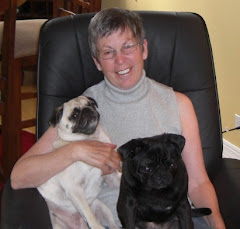I have simulatneously put this post on my own blog for the simple reason that I think that genetic genealogy testing has the "potential" to provide some answers for those of us that do not have any and have no means of being able to make a search of any sort. Thereby giving some of us an avenue of moving forward, maybe not all the way to our goal but perhaps at least part of the way. After all it has been a successful avenue for at least one DC person.
In an effort to compensate for the lack of heritage and knowledge of my genetic father that was forcibly imposed on myself by being donor conceived I undertook a genetic genealogy test from Family Tree DNA. While there are numerous companies offering such services, FTDNA was settled on due to having the largest database, a factor of great importance when trying to create a match with a potential distant relative. Once the testing kit arrived in the letter box it was a simple matter of collecting some buccal cells (cheek cells from the inside of you mouth) via a scraping, then sending it back to the testing company and waiting for the results.
The genetic genealogy test in regards to paternity works by following the Y-chromosome through the generations, as such, finding more information on your genetic donor father and your heritage through that part of your family tree is only possible for male offspring. Unfortunately female offspring are unable to do this. However, if they are a product of donated eggs they (as well as male offspring) could potentially follow the maternal side of their family tree through mitochondrial DNA testing which follows the maternal line. Both tests implement the premise that both the Y-chromosome and mitochondrial DNA are highly conserved and do not change when passed onto the next generation. Small changes do occur occasionally due to mutations and is the reason why we can then see who is closely related to each other through their DNA and why most people are related to each other if we go back far enough in history.
I purchased the Y-DNA 37 markers test from the option of 12, 37 and 67 markers on the recommendation of FTDNA with the theory being that 12 markers are not specific enough to verify a relation whereas 67 were supposedly too specific and that a certain degree of ambiguity is desirable when a person has no knowledge of their heritage or a genetically inherited family name (eg. adoptees and donor conceived).
These markers are assigned DYS (DNA Y-chromosome segment) numbers and a numerical value is returned based on which mutation has been detected in the test by looking for Y-STRs (short tandem repeats). It is these numbers which are used to match yourself with others that are related. From my results, FTDNA matched me perfectly to 4 other individuals at the 12 marker level, and to 2 others at a genetic distance of 2 at the 25 marker level. The genetic distance is a measure of how many markers are different and by what degree they are different. This was within the FTDNA database, however, it is possible to put you values into a wider database such as Y-SEARCH which allows people who have been tested by other companies to put their values online and to search for matches. The advantage of a database such as this is that it can be considerably larger and it allows you to conduct more thorough searches by changing the parameters to which matches are made which is not possible on the FTDNA site and subsequently, people that can be related could be excluded from being shown to you through the FTDNA results. Putting my marker values in Y-SEARCH allowed me to match to several individuals at more than 30 markers with a relatively small genetic distance. While it may at one level be beneficial to keep some level of ambiguity in your testing for those of unknown paternity. It can also create other problems in that by not being specific enough to confirm a close relation. From 37 marker results it is possible that someone that may appear close is actually quite distant at the 67 marker level, and conversely someone who may not initially appear as the main person of interest at 37 markers may be considerably close at the 67 marker level.
In addition to the marker values and possible matches that are obtained through such testing, a haplogroup can be assigned to your results. This haplogroup basically describes a part of the population that originates from a common ancestor through the use of single nucleotide polymorphisms (SNPs). As such depending on what haplogroup may be assigned to you, the region from which your paternal line comes from can be pinpointed or narrowed down. For example my haplogroup is most closely associated with the British Isles and Western Europe. This haplogroup can be defined to a greater level through Deep Clade testing which then has the possibility of further refining your ancestral origins to a region within these areas. My haplogroup assignment is also supported by the greatest number of matches I had of certain markers which define recent common ancestor origins to the areas of England, Scotland, Ireland and Germany.
So how do these results affect my knowledge of my heritage and my quest to find my genetic father?
In several ways;
First the matches that I have been able to make provide a basis to conduct further research. For those in the databases that have selected to allow their contact details to be accessible, they can be contacted and research can be conducted on their family history to see if there is a possibility of a closer link.
Secondly, the surnames (and their derivatives) that can come back as matches can be used by donor offspring to cross-reference with in my case names of medical and science graduates which comprised the donor pool at that time as possible avenues of enquiry.
Thirdly, any haplogroup assignment could also help narrow down the name pool of potential donors from the aforementioned donor pool based on certain family names originating from certain areas of the world.
The use of such testing has been used successfully previously with one donor offspring in the USA finding their genetic father by matching up with a close relative. There are also other companies which conduct health analysis of DNA. These tests analyse a person’s potential susceptibility to certain illnesses based on genetic links with these diseases.
The thing that must be noted is that any genetic genealogy result obtained is dependent on a close or distant relation also having undergone testing. While currently the greatest population of people undergoing such testing live in the USA, the British Isles and Western Europe, with more and more people being tested everyday, for those that may not get closer to discovering their heritage or even their paternity initially, eventually they may get there given time.
While I cannot show here the results of any matches as enquiries are ongoing, they have not excluded any of the information and lines of enquiry that I had obtained through other means before undergoing genetic testing. In regard to further genetic testing I may in the near future increase the number of markers to narrow down some of the potential matches if the line of enquiry deems that it would be of benefit. A further refinement of the haplogroup assignment by Deep Clade testing may also assist in this and will be assessed on its necessity as required. A full DNA “health” analysis is something that I will undertake to fill in the gaps of a family health history that I am missing. While genetic genealogy testing and DNA health analysis may not give to me the genetic father that has been missing in my life, it has the potential to provide for not just myself but also to my children a picture of our heritage (the origin of my paternity by region) but also a family health history which will be just as important to them as me.
Monday, June 8, 2009
Genetic Genealogy Results
Posted by damianhadams
Subscribe to:
Post Comments (Atom)

.jpg)
.jpg)



.jpg)


6 Responses to "Genetic Genealogy Results"
please see the unicef approved link >
http://beware-of-the-fertility-industry.blogspot.com
this information was vital I help my family. send me more information.
All stuff related to such issue as Genetic Genealogy Results is absolutely interesting.
I think human being's fate rests on everything related to technology.
Great review of the results!
Great points
Good sshare
Post a Comment